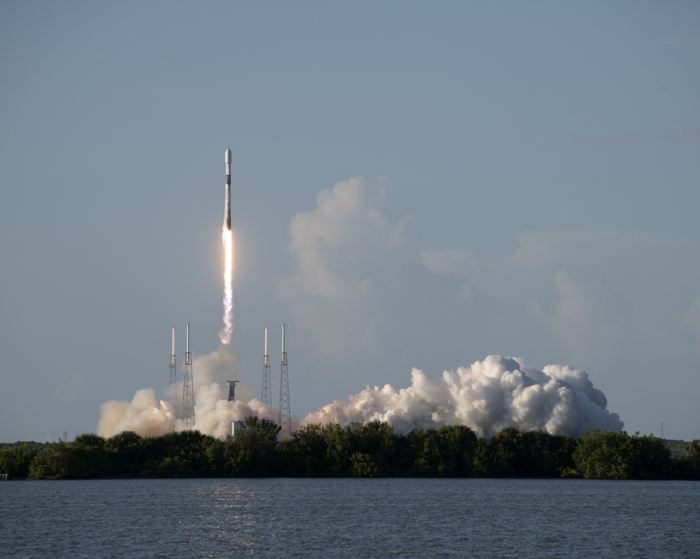Aerospace & Defense
S.Korean President Yoon to lead national space policy
Yoon seeks cooperation on space development with the US, saying Korea will develop the military alliance into a space alliance
By Nov 28, 2022 (Gmt+09:00)
3
Min read
Most Read
LG Chem to sell water filter business to Glenwood PE for $692 million


Kyobo Life poised to buy Japan’s SBI Group-owned savings bank


KT&G eyes overseas M&A after rejecting activist fund's offer


StockX in merger talks with Naver’s online reseller Kream


Mirae Asset to be named Korea Post’s core real estate fund operator



South Korean President Yoon Suk-yeol is set to lead the National Space Council, the country’s top control tower for space development, in a bid to accelerate growth in the future economy.
Yoon on Monday unveiled the country’s ambition to land on the moon and start mining resources there in 2032, as well as set down on Mars in 2045. The country aims to double its budget on space development in the next five years and draw investments of more than 100 trillion won ($75 billion) from the private sector.
“We will expand our economic territory to the moon and Mars,” Yoon said at an event to declare Korea's future space economy roadmap. “I will prepare for the era of the space economy as chairman of the National Space Council.”
The council, which has been led by the prime minister, is a government body to decide whether and when to develop its homegrown space rocket carrying payloads, and the country’s first moon probe.
In June, South Korea succeeded in the launch of the Korean Satellite Launch Vehicle Two (KSLV-II), nicknamed Nuri. That escalated the country’s status to become one of the world’s seven space powerhouses including the US, Russia, China, Japan, the European Union and India, which have launched satellites of at least 1 ton with their own technology.
SPACE AND DEFENSE ARE ONE
Yoon’s decision came as the world is racing to take the lead in space development with the national security and defense sectors combined with space technologies.
The advancement of rocket guidance, navigation and control, as well as projectile propulsion technologies are directly linked to the performance improvement of ballistic missiles, for example. Communication, navigation and reconnaissance satellites are becoming more important in the wartime operation system.
US Indo-Pacific Command recently launched a new space force command in the region in a move believed to be aimed at enhancing US defense capabilities against ballistic missile threats posed mainly by China and North Korea.
Yoon said South Korea will seek cooperation on space development with the US and other countries.
“We will develop the military alliance with the US into the space alliance while expanding space security cooperation with the international community,” he said.

COLLABORATION AMONG MILITARY, PUBLIC, PRIVATE SECTORS
With Yoon’s lead, the council is expected to seek more collaboration among the country’s military, public and private sectors on the space development programs.
The Korea Aerospace Research Institute and private companies have been developing rockets for satellites, while the Agency for Defense Development and the Defense Acquisition Program Administration have been focusing on military projectiles.
The Ministry of Science and ICT, the Ministry of Trade, Industry and Energy, as well as other government departments have been working on their own space projects.
The council already set up a division for private space technology, which the science minister will lead, and one for military and security purposes, which the defense minister and the National Intelligence Service chief are expected to control.
South Korea also set up a team to establish a separate government aerospace agency, which involves various ministries including the Ministry of Science and ICT as well as the Ministry of National Defense.
Write to Hae-Sung Lee and In-Yeop Kim at ihs@hankyung.com
Jongwoo Cheon edited this article.
More to Read
-
 Aerospace & DefenseS.Korea’s first mission to the Moon, Danuri, enters transfer orbit
Aerospace & DefenseS.Korea’s first mission to the Moon, Danuri, enters transfer orbitAug 05, 2022 (Gmt+09:00)
2 Min read -
 Aerospace & DefenseS.Korea ushers in new space era with rocket launch success
Aerospace & DefenseS.Korea ushers in new space era with rocket launch successJun 21, 2022 (Gmt+09:00)
3 Min read
Comment 0
LOG IN


